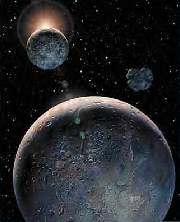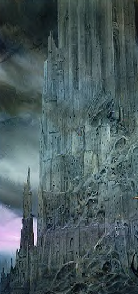Definitions can be either theoretical (as when one attempts to express the essence of some already-known phenomenon) or stipulative (as when one simply lays down certain criteria for what is to count as such-and-such). Theoretical definitions have a mind-to-world direction of fit, and can be true or false; stipulative definitions have a world-to-mind direction of fit, and so cannot be false. It’s not always easy to tell of a particular definition which category it falls under, however, since sometimes our stipulative definitions are implicit; hence when a proposed definition seems open to criticism, that might be either because it is theoretical or else because it is an attempt to capture explicitly some implicit stipulative definition. Call the latter kind of attempt an implicit stipulative definition. (Actually there are good Wittgensteinian reasons for thinking that the distinction between theoretical definitions and indirect stipulative definitions is rather fuzzy; this in fact I take to be the real, though not the intended, moral of Alan Sidelle’s Necessity, Essence, and Individuation. But never mind for now.)
 This brings me to the recent decision to reclassify Pluto as no longer a planet. Is the new definition of “planet” stipulative? Presumably; but I don’t think it’s best understood as directly stipulative. The controversy over the decision was not simply about convenience or sentiment. Rather it was an attempt to identify (and prioritise) the classificatory principles implicit in our existing practice. In that sense it was a “grammatical” inquiry. (I’m agnostic as to whether the answer reached was, or is now, correct. It’s in principle possible for it to have been incorrect and yet now be correct, if the practice of experts plays a role in determining the definition.)
This brings me to the recent decision to reclassify Pluto as no longer a planet. Is the new definition of “planet” stipulative? Presumably; but I don’t think it’s best understood as directly stipulative. The controversy over the decision was not simply about convenience or sentiment. Rather it was an attempt to identify (and prioritise) the classificatory principles implicit in our existing practice. In that sense it was a “grammatical” inquiry. (I’m agnostic as to whether the answer reached was, or is now, correct. It’s in principle possible for it to have been incorrect and yet now be correct, if the practice of experts plays a role in determining the definition.)
On a vaguely related note, the fictional planet Yuggoth (which I guess is no longer a planet either, since it was supposed to be identical with Pluto) is referenced several times in the work of H. P. Lovecraft, but the fullest description is in his short story “The Whisperer in Darkness”:
It is a strange dark orb at the very rim of our solar system – unknown to earthly astronomers as yet. … There are mighty cities on Yuggoth – great tiers of terraced towers built of black stone …. The sun shines there no brighter than a star, but the beings need no light. They have other subtler senses, and put no windows in their great houses and temples. Light even hurts and hampers and confuses them, for it does not exist at all in the black cosmos outside time and space where they came from originally. To visit Yuggoth would drive any weak man mad …. The black rivers of pitch that flow under those mysterious cyclopean bridges – things built by some elder race extinct and forgotten before the beings came to Yuggoth from the ultimate voids – ought to be enough to make any man a Dante or Poe if he can keep sane long enough to tell what he has seen …. that dark world of fungoid gardens and windowless cities ….
But essentially the same picture is offered in two early poems (evidently earlier than the story), though neither explicitly identifies its subject as Yuggoth. One is “The Cats,” where the setting is blurred between Yuggoth (the mention of Pluto, most of the descriptions) and Earth (cats and bats, the reference to the fictional Massachusetts town Arkham):
 Babels of blocks to the high heavens towering,
Babels of blocks to the high heavens towering,
Flames of futility swirling below;
Poisonous fungi in brick and stone flowering,
Lanterns that shudder and death-lights that glow.
Black monstrous bridges across oily rivers,
Cobwebs of cable to nameless things spun;
Catacomb deeps whose dank chaos delivers
Streams of live foetor that rots in the sun.
Colour and splendour, disease and decaying,
Shrieking and ringing and crawling insane,
Rabbles exotic to stranger-gods praying,
Jumbles of odour that stifle the brain.
Legions of cats from the alleys nocturnal.
Howling and lean in the glare of the moon,
Screaming the future with mouthings infernal,
Yelling the Garden of Pluto’s red rune.
Tall towers and pyramids ivy’d and crumbling,
Bats that swoop low in the weed-cumber’d streets;
Bleak Arkham bridges o’er rivers whose rumbling
Joins with no voice as the thick horde retreats.
Belfries that buckle against the moon totter,
Caverns whose mouths are by mosses effac’d,
And living to answer the wind and the water,
Only the lean cats that howl in the waste.
The other is an excerpt from the poem-cycle Fungi from Yuggoth (which despite the title does not deal exclusively with Yuggoth). Here the reference to “long rows of windows” clashes with the short story’s reference to “windowless cities,” but nevertheless it is clearly once again the same place.
Somewhere in dream there is an evil place
Where tall, deserted buildings crowd along
A deep, black, narrow channel, reeking strong
Of frightful things whence oily currents race.
Lanes with old walls half meeting overhead
Wind off to streets one may or may not know,
And feeble moonlight sheds a spectral glow
Over long rows of windows, dark and dead.
There are no footfalls, and the one soft sound
Is of the oily water as it glides
Under stone bridges, and along the sides
Of its deep flume, to some vague ocean bound.
None lives to tell when that stream washed away
Its dream-lost region from the world of clay.
So what does all this have to do with anything? Not much; I just like those descriptions.
